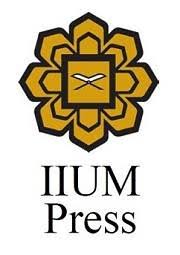The Principles of Islamic Polity in the Qur’an and Sunnah: Revisiting Modern Political Discourse
DOI:
https://doi.org/10.31436/alburhn.v7i1.296Abstract
Polity is a global phenomenon that refers to the political system, structures, and processes for shaping and governing society. Islam, as a complete code of life, addresses all issues of polity. This study attempted to explore the political system of the Holy Qur’an, Practiced by the Prophet (SAAS) and the Khulafa-e-Rashidun as well. This study found that essential principles of the Islamic polity mentioned in the Qur’an are Tawhid (Islamic Monotheism), Shari`ah (Way of life), ‘Adalah (Justice), Hurriyah (Freedom), Musawah (Equality), Shura (Consultation), Al-Wasatiyyah (Moderation), Khilafah (Vicegerency), Ummah (Commonwealth), Muhasabah (Accountability), and Muʿāmalāt (Civil Conduct) etc. Regarding the Prophetic tradition, it is evident that the Madinan Charter, also known as the first written Constitution of the world and the Hudaibiyah Peace Pact were historically significant examples of a multicultural society where peaceful co-existence, freedom of all religions, and women’s participation had been ensured. Moreover, this study also discovered that the major Polity practiced by the Khulafa-e-Rashidun were Free and fair elections, Decision Process by Shura, Respecting Public Opinion, and Ensuring Transparency and Accountability etc.
Downloads
References
AbuSulayman, AbdulHamid. (1988). Islam: Source and Purpose of Knowledge. Herndon: The International Institute of Islamic Thought.
AbuSulayman, AbdulHamid. (1994). Islamization: Reforming contemporary knowledge. Vol. 6. IIIT.
Aisha, Stacey. (2018). The Concept of Ummah in Islam, The Religion of Islam. Access date 11 Jan 2021
Al-Ahsan, Abdullah, and Stephen B. Young. (2017). Qur’anic Guidance for Good Governance: A Contemporary Perspective. Springer.
Al-Alwani, Taha Jabir. (1990). "Political Science in the Legacy of Classical Islamic Literature." American Journal of Islamic Social Sciences (AJISS) 7 (1): 9-14.
Alim. (2023) "Islamic History of Khali Umar bin Khattab: Inter-Personal Relations and Interactions - When Umar Was Put To Explanation." Accessed March 16, 2023. https://www.alim.org/history/khaleefa/umar/17/9/.
Ansari, A. H. "Ibn ‘Arabi. (1999). The Doctrine of Wahdat Al-Wujud." Islamic Studies 38, no. 2: 149-192.
Armstrong, Karen. (2007). Muhammad: A Prophet for Our Time. New York: Harper Collins.
Ayoob, Mohammed. (2004). "Political Islam: image and reality." World Policy Journal 21, no. 3: 1-14.
Black, Antony. History of Islamic Political Thought: From the Prophet to the Present. Edinburgh University Press.
Bouma, Gary D. (1992). Religion: meaning, transcendence, and community in Australia. Longman Cheshire.
Buckle, Stephen. (2002): "Aristotle's republic or, why Aristotle's ethics is not virtue ethics." Philosophy 77, no. 4: 565-595.
Catlin, George. (1957). "Political Theory: What Is It?." Political Science Quarterly 72, no. 1:1-29.
Garner, James W. (1906). "The Relations of Political Science." American Journal of Sociology 12, no. 3:341-366.
Hamidullah, Muhammad. (1986). The first written constitution in the world. Chicago, IL: Kazi Publications.
Hoque, Muhammad Rafiqul. (2011). "Identity of an Islamic Ideological State: An Analytical Study." IIUC Studies 7: 147-178.
Hossain, Muhammad Kamal. (2009). "Islamization of Human Knowledge as the Most Important Mission of IIUM." Unpublished paper, Gombak: CPD, IIUM.
Husin, Wan Norhasniah Wan, and Haslina Ibrahim. (2016). "Religious freedom, the Malaysian constitution and Islam: A critical analysis." Procedia-Social and Behavioral Sciences 217: 1216-1224.
IBFIM. (2023). "Muʿāmalāt: The Social Concept." Accessed March 16, 2023. http://takafuleexam.com/e-content/TBE-A/content/18141053PartAEnglish.pdf.
Isakhan et al.; (2014). "The Meaning and the Historical Prerequisites of Appearing the “Madina's Constitutions”." Procedia-Social and Behavioral Sciences 131: 391-395.
Kamali, Mohammad Hashim. (1999). "" MAQĀṢID AL-SHARĪ'AH": THE OBJECTIVES OF ISLAMIC LAW." Islamic studies 38, no. 2: 193-208.
Kamali, Mohammad Hashim. (2007). "Sharīah and civil law: Towards a methodology of harmonization." Islamic Law and Society 14, no. 3: 391-420.
Kapur, Anup Chand. (1997). Principles of political science. S. Chand Publishing.
Khatab, Sayed, and Gary D. Bouma. (2007). Democracy in Islam. Routledge.
Khel, Muhammad Nazeer Kaka. (1982). "Foundation of the Islamic state at Medina and its constitution." Islamic Studies 21, no. 3: 61-88.
Lasswell, Harold. (1958). Politics: Who Gets, What, When and How. Cleveland, OH: World Publishing Company.
Lukman, Tengku. (2006). Discourse on Islamic Political Thought. Kuala Lumpur: University Malaya Press.
Malik, Muhammad Khalid. (2014). "The Sociology of Islamic Culture." European Scientific Journal 1: 1857-7881.
Masmoudi, Radwan. (2003). "The Silenced Majority." In Islam and Democracy in the Middle East, edited by Larry Diamond, Marc F. Plattner, and Daniel Brumberg: 44-54. Baltimore & London: The Johns Hopkins University Press.
Mawdudi, AbulAla. (1973). Islamic Way of Life. Kuwait: International Islamic Federation of Student Organizations.
Mawdudi, Sayyed AbulAla. (1997). The Islamic Law and Constitution (12th ed.). Lahore: Islamic Publications Limited.
Mohamed, Sirelkhatim. (2015). "Authority in Islam: The institutionalization of Islam and the elusive transfer of authority from society to state." Journal of Georgetown University-Qatar Middle Eastern Studies Student Association 2015, no. 1: 2.
Moten, Abdur Rashid and Islam, Sayed Sirajul. (2011). Introduction to Political Science. Singapore: Cengage Learning Pte Ltd.
Moten, Abdur Rashid. (1996). Political Science: An Islamic Perspective. London: Macmillan Press.
Parray, Tauseef Ahmad. (2012). "Global Muslim Voices on Islam–Democracy Compatibility and Co-existence: A Study of the Views of Sadek Sulaiman, Louay Safi, Radwan Masmoudi, and Muqtedar Khan." Journal of Middle Eastern and Islamic Studies (in Asia) 6, no. 1: 53-86.
Parry, T. A. (--). Global Muslim Voices on Islam – Democracy Compatibility and Co- existence: A Study of the Views of Sadek Sulaiman, Louay Safi, Radwan Masmoudi, and
Porter, J. (1998) Recent Studies in Aquinas's Virtue Ethic: A Review Essay, The Journal of Religious Ethics, 26(1): 189-215.
Qardhawi, Yusuf. (1977). "Ghayr al-muslimin fi al-mujtama’al-Islam." Kaherah: Maktabah Wahbah .
Rashid, A. and Mamat, A. (2013) Educational View of the Islamic Leadership: Are the Islamic Leaders Performing Their Responsibilities? International Journal of Humanities and Social Science. 3(3): 178-185.
Rhaman, M. S. A. (1995) Kedudukan masyarakat bukan Islam dalam sejarah Islam, Kuala Lumpur: IKIM.
Rida, Muhammad Rashid. (1925). Tarikh al-ustadh al-imam al-Shaykh MuhammadAbduh. Matbaat al-Manar.
Turabi, Hasan. (1987). "Principles of governance, freedom, and responsibility in Islam." American Journal of Islam and Society 4, no. 1: 1-11.
Unal, Tarik (2013). Umar Ibn Al-Khattab: Exemplary of Truth and Justice Tughra Books, Turkey.
Downloads
Published
How to Cite
Issue
Section
License
In general, reusing or reproducing substantial portions of al-Burhān content requires permission. This includes the use of text, figures, tables, multimedia content, and any other material published in any issues of al-Burhān Journal of Qur'an and Sunnah Studies. For some instances, al-Burhān may make its content freely viewable; however, such material may require permission for reuse. To seek permission, please contact the editorial.









